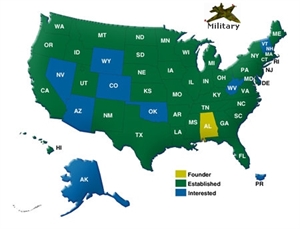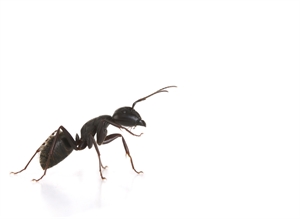Jim Thorpe Native American Games on June, 2024: who is Native American activist.athelete Jim Thorpe?
Jim Thorpe Native American Games 2024. Native American Game Learn About Native american game Subscribe to Our Newsletter!
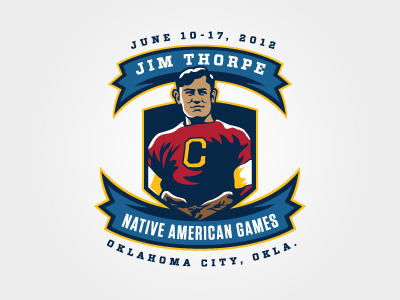
Jacobus Franciscus "Jim" Thorpe (28 May, 1888 – 28 March, 1953) was an American athlete. Considered one of the most versatile athletes in modern sports, he won Olympic gold medals in the 1912 pentathlon and decathlon, played American football at the collegiate and professional levels, and also played professional baseball and basketball. He lost his Olympic titles after it was found he was paid for playing two seasons of Semi-Pro Baseball before competing in the games, thus violating the amateur status rules. Thorpe was Native American Indian and European American. Raised in the Sac and Fox nation in Oklahoma, he was named Wa-Tho-Huk, roughly translated as "Bright Path". He played on several All-American Indian teams throughout his career, and barnstormed as a professional basketball player with a team composed entirely of Native Americans.
In 1950, Thorpe was named the greatest athlete of the first half of the twentieth century by the Associated Press (AP). In 1999, he was ranked third on the AP list of top athletes of the 20th century. His professional sports career ended in the years of the Great Depression, and Thorpe struggled to earn a living. He worked several odd jobs, struggled with alcoholism, and lived out the last years of his life in failing health and poverty. In 1983, thirty years after his death, the International Olympic Commission (IOC) restored his Olympic medals to his name.
At the age of 24, Thorpe entered the U.S. Olympic trials for both the pentathlon and the decathlon. He easily won the awards, winning three events, and was named to the pentathlon team, which also included future International Olympic Committee (IOC) president Avery Brundage. There were only a few candidates for the decathlon team, and the trials were cancelled. Thorpe's competition schedule for the Olympics was crowded. Along with the decathlon and pentathlon, he entered the long-jump and high-jump competitions. The first event scheduled was the pentathlon. Thorpe was the class of the field, winning four events. He placed only third in the javelin, an event he had not competed in before 1912. Although the competition was primarily decided on place points, points were also calculated for the marks achieved in the events. He won the gold medal for the pentathlon.
The same day, Thorpe qualified for the high-jump final. In that final, he placed fourth and took seventh place in the long jump. Thorpe's final event was the decathlon, where tough competition from local favorite Hugo Wieslander was expected. Thorpe, however, also easily defeated Wieslander, finishing nearly 700 points ahead of him. He placed in the top four of all ten events. Overall, Thorpe won eight of the two competitions' 15 individual events. As was the custom of the day, the medals were presented to the athletes during the closing ceremonies of the games. Along with the two gold medals, Thorpe also received two challenge prizes, which were donated by King Gustav V of Sweden for the decathlon and Czar Nicholas II of Russia for the pentathlon. Several sources recount that, when awarding Thorpe his prize, King Gustav said, "You, sir, are the greatest athlete in the world," to which Thorpe replied, "Thanks, King." Thorpe would contest his first—and, as it turned out, only—decathlon in the Olympics. Thorpe's Olympic record of 8,413 points would stand for nearly two decades.
Thorpe's glorious Olympic wins were jeopardized in 1913 when it came out that he played two semi-professional seasons of baseball. The Olympics Committee had strict rules about Olympians receiving monetary compensation for participating in professional athletics. Thorpe, who stated he played for the love of the game and not the money, was put under the microscope. Ultimately, it was decided that his baseball experience adversely affected his amateur status in the track and field events. His name was removed from the record books and his gold medals were taken away.
Thorpe moved on after the Olympic ordeal and signed to play baseball for the New York Giants. He played outfield with New York for three seasons before relocating and playing with the Cincinnati Reds in 1917. He played 77 games with the Reds before finally returning to the Giants for an additional 26 games. In 1919 he played his final season in major league baseball, ending on the Boston Braves team.
During much of his baseball years, Thorpe was also immersed in professional football. He played for the Canton (Ohio) Bulldogs from 1915 until 1920 and the Cleveland Indiana (Indians) in 1921. In the years following, he organized, coached and played with the Oorang Indians, a professional football team comprised completely of American Indians. Additionally, he was instrumental in forming the American Professional Football Association, and eventually became the president of the group. Through the years, the association evolved into today's NFL. In all, Thorpe played with six different teams during his career in pro foot
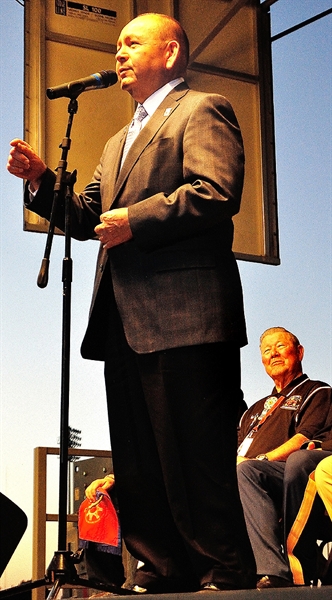
Who was the first Native American to win an Olympic gold medal ?
Jim Thorpe was the first, but only if you count a half-Native American as a Native American in the context of your question. He won the pentathalon and decathalon at the 1912 Olympics. Unfortunately, he later had his Olympic wins revoked due to having been a paid athlete before the games.
Billy Mills was 100% Native American, and won the gold in the 10,000 meter run in 1964.
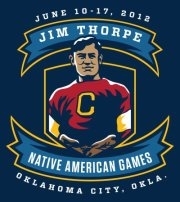
Why was Jim Thorpe stripped of his medals in 1913?
Thorpe was stripped of the 1912 pentathlon and decathlon medals for having played in some semi-pro baseball games in 1909 and 1910. At the time, there was a strict ban on Olympic athletes receiving any salary from any sports. The Amateur Athletic Union (AAU) and American Olympic Committee (now USOC) were fanatical about enforcing this rule. No matter that it's likely other Olympians did the same, no matter that Thorpe was reportedly paid as little as $2 per game. That much is undisputed.
Where I disagree with sports historians is the significance of when Thorpe was stripped of his medals. The International Olympic Committee mandated that all appeals be made within 30 days of the awarding of the medals. Thorpe was DQ'd 6 months after the Olympics.
Why did the IOC, AAU, and AOC all ignore the statute of limitations? I believe it was because those organizations saw the Olympics as the providence of the wealthy and aristocrats. That's why they instituted amateurism rules: to prevent those who worked for a living from applying their trade to beat the aristocrats in sports. Once they saw a chance to embarrass a poor Native American who beat them at their own game, they blatantly broke their own rules. This was not about amateurism; this was about classism with a little racism.



